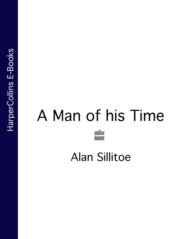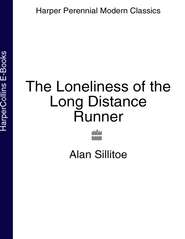По всем вопросам обращайтесь на: info@litportal.ru
(©) 2003-2024.
✖
Birthday
Настройки чтения
Размер шрифта
Высота строк
Поля
He let her go, whether or not she hoped he might hold on to her forever and release her from the life she had been pitched into. He saw the light glow again in those melting brown eyes that he recalled after making love so many times in the old days, knew her as she was then, the momentary resurrection of the past suddenly blown away like so much smoke, the poignancy that you couldn’t go back setting him as close to a broken heart as he would ever get.
Pain pulled them away, a fire that burned all memories. ‘Call again,’ she breathed into his ear. ‘Anytime you like. I’ll always be here.’
George’s room faced onto the garden, but he would wonder, all the same, why his departure was taking so long. The neighbours would also be looking through their curtains, but he couldn’t care less about that, and neither could Jenny. ‘I will.’
If you could dispute the number of angels able to dance on the tip of a pin he wondered how much emotion could be packed into a split second as he drove back through Basford Crossing. A message from a new chapel not noticed before said: ‘Turn your cares into prayers.’ Only a quick reader wouldn’t smash into the crossing gates, cursing a prayer that had done no good at all. The exhortation couldn’t concern him, though did suggest that there might be life in the old district yet.
The new estate on which his mother lived was such a tangle of ways and drives and crescents and closes and cul-de-sacs and gardens and walks and rises that all but a madman would get lost, no distinguishing features to indicate one turning from another. Only a pull-in and unremitting attention to the town plan ever got him to her ground-floor flat. Ask someone who lived there how to find a certain address and nine times out of ten you’d get a blank stare and the statement that they didn’t know, though the regret was plain at not being able to tell you. The planners had created a nightmarish labyrinth rather than a civilized layout of houses; the street plan of Radford in his younger days had been simple by comparison.
‘I’m glad you went to see her.’ A Senior Service smouldered in one hand, and a mug of strong tea steamed in the other. ‘She told me she’d love to see you, and it makes a change for the poor woman, with that bleddy miserable husband she’s got to look after. A right bleddy burden he is. If I was her I’d pack him off into a home. He can be a nasty bogger, as well. She came here once with a black eye, and I said: “You want to bogger off, duck. Don’t put up with it. He don’t appreciate anything you’ve done for him.” But she said: “I just couldn’t do a thing like that. I daren’t even let myself think about it.”’
‘It would be hard to leave a bloke in that condition,’ he said.
‘Yes, I suppose it would. I don’t expect I’d do it, either. When I think of what I had to put up with from Harold all those years, it makes me marvel. Every morning I used to think of packing him in. It’s twenty-five years since he died, and I haven’t been unhappy a single day since. Before that I was never in peace for a minute.’
The old man had led her such a dance that she let no tears fall at his funeral, though put a hand to her face as if some were there while going through a group of neighbours to the hearse. She cut bread and laid out smoked ham and fresh tomatoes for his tea, fuel for his drive to London. He recalled sitting on her knees and reading when he was six, the air warm at the end of a summer’sevening, and she still a young woman (he realized now) resting on the doorstep before going inside to make Harold’s supper. He put together one sentence after another, a miracle to them both, from a book about people going fancy free over the countryside in a gypsy caravan – and how she must have wished she was with them!
Doing an effortless ninety after the Leicester turn-off, a car ahead had for some reason stopped on the inside lane, no hazards flashing, or brake lights redly blazoning. There was barely time to notice in the dusk, and who but a murderer or a mindless suicide would stall at such a place and give no warning? By the splittest of seconds he swung the wheel and missed the car’s bumper by inches, realizing that in all his years of driving he had never been so close to annihilation. Instinct had saved him, no other way to explain it.
He pushed in a tape of the Messiah. If he had survived as a basket case there would have been no one like Jenny to look after him, because what generous actions had he performed to be paid back for? Scorning to admit that the nearest of misses had scared him, he slowed to seventy and thought of Jenny getting the shit out of George twice a day and emptying it, the eighth baby she was never to get off her hands. His pitiful existence was her dead-end from which there was neither escape nor relief, no matter how often he was shunted off to Ingoldmells. Her placid and uncomplaining aspect didn’t mean she wasn’t suffering. He knew she was. She had to be, and giving no sign made him as angry as if she was betraying their former love.
The music wiped out her face, kept the mind blank to stay fixed on the road and not get killed. The turmoil of his two marriages and the bother of three children as recalcitrant as himself had taught him at least to be calm. They were grown up, and no longer needed his money (they’d had plenty, willingly given) and rarely telephoned because they didn’t approve of his feckless ways. He only knew that no longer being married stopped him inflicting misery on those who had the misfortune to get too close.
To complain about his own life would be self-indulgence compared to Jenny’s fate, but she at least had a solid reason for existence, and in any case all lives were at some time pitiable, otherwise there would be nothing for scriptwriters to do except a day’s real work.
He hated the dazzle of driving at night, the lack of horizon and uncertain borders, so with half the run gone he forked into a service station. The coffee was like whitewash and the wedge of sweet cake hard to swallow. He lit a cigar, and readied himself for the road again, reflecting as he headlighted towards the exit going south that he had come a long way from Basford Crossing, which couldn’t be anything but good.
THREE (#ulink_4e03222e-4347-5096-ad2a-5ce226c45f9e)
Passing Basford Crossing was as if you were going to be hanged, because your whole life went by during the time it took to bump over the cobbles and between the railway gates. Like bumps in your life they passed up the spine and into the brain, and Arthur, mulling on how much had changed in his time, couldn’t decide whether it was due to circumstance, or because he was the way he was. He’d often talked about it with Avril, with Derek and Brian and Eileen but, ever suspicious, knew there had to be more to it than a shuffling of cards by blind fate.
As regards housing, the giant ball and chain mechanisms of the council had gone through one area after another, smashing up dwellings that had been lived in for generations, when bathrooms could have been installed above the scullery and made them comfortable for another fifty years. People had been miserable in them only for lack of money when they were out of work, but bulldozing whole districts and throwing up high-rise hencoops was ordained by those who made enough money from the business never to have to live in them.
Jenny and her family had a pre-war council house at Broxtowe, and Arthur remembered going there with Brian because her father had given him the unexpected bonus of sixpence, the equivalent of a pound coin in those days. Jenny’s two sisters had the same long dark hair, and even the mother looked like them, though she must have been older. No wonder the father was self-satisfied and full of energy, being surrounded by women.
Arthur even at thirteen could tell Brian was getting plenty of crumpet, and Jenny’s parents didn’t put a spoke in the wheel as long as she wasn’t knocked up. If he had knocked her up he would have married her, and that would have been that, which was fair enough, if you were daft enough to do it.
Cousin Bert got a girl in the family way. He’d had dozens of girls so should have known better, but the girl’s fat brute of a father collared him on his way out of work and threatened to squash him like an orange if he didn’t do the right thing. Arthur, who knew he would get out of a similar situation if he didn’t love the woman, told Bert to do a runner, but Bert over his pint in the Peach Tree said that if it wasn’t Maureen it would be somebody else, a surrender to circumstance so bizarre that Arthur could only suggest that they drink up and go for another in the Royal Children. Thus Bert got married, and lived much like everyone else, happily and unhappily ever after.
When Jenny and Brian stopped going out together, somebody else put a bun in her oven, and her father wasn’t big enough, or fat enough, or maybe even fit enough, or not caring enough, or perhaps she kept it from him until it was too late (he wouldn’t put it past her) but that was no excuse for not chasing the bastard up and kicking the guts out of him. More likely Jenny hadn’t let on as to who the man was, luckily for him, because her father was, after all, a dab hand with pick and shovel at the coal seam.
Brian would never have got her preggers, and that was a fact, because he cared about such things, and hadn’t fancied living out his time in a Nottingham council house. He got away because he had the brains to do it, and the guts to live for years in a London bedsitter before earning any money. I sometimes wonder though whether he wouldn’t have been happier staying where he had been brought up.
Basford Crossing as he had known it was a far-off country, and he sometimes found it hard to decide whether he’d actually lived there, or had dreamed it in his working time at the machine, as if lost in the early mist of a summer’s day that lasted till night time, clearing only at moments to let him see the old buildings and crossing gates.
Reality behind the eyes showed scenery almost too good to be true, yet the ruins of the place were now like those of Pompeii in Italy he had seen on a coach tour with Avril, wrecked, flyblown, empty, resentful at being abandoned, a sudden pull out from the prime of life, as if the RAF had done a thorough job back in the war.
He hadn’t seen the area for years and then, passing through one day on his way to somewhere else, he noted that death had already taken place, as if a gigantic fist had picked up the locality and given it a good pasting, people fleeing in all directions as they must have done from Pompeii when fire and ash came down, while those who survived the upshake were rattled to the core, had only enough spirit to pick up their tranklements and form their columns of refugees.
Nowadays there was nobody, no footsteps, no laughter, no joshing voices, no shrieking kids to wave the next train through. A few people walking by in a hurry looked as shifty and guilty as if they’d been responsible for the area getting ruined. Cars going somewhere else were driven by those who in the old days would have walked or taken a tram, and he supposed they hated to be reminded of the place because they’d had no car or television or fridge or washing machine or a mobile phone, maybe only a wireless or radiogram. Far from being happy with all they’d got now, they were dead from the neck up.
He recalled the girls he had taken to the fields around Top Valley Farm, an area now covered with houses and old folks’ bungalows, in one of which his mother had lived. The girls were fourteen or fifteen (maybe younger: they didn’t tell him and he didn’t ask) but when snuggled up to in a hedge bottom they melted softly into the warmth of each other’s bodies, hardly knowing it would end in going all the way, unable to tell at that age the difference between spunk and cuckoo spit as they strolled lovingly hand in hand back to Basford Crossing. He knew where in the bedroom Brian hid french letters, and helped himself, until Brian twigged some were missing and told him to get his own, since he was already bringing in money from the bike factory.
He supposed all the girls he had shagged – good looking, passionate, and knowing what they wanted – had got married and had kids, some of them divorced and living as single mothers in flats provided by the council – and good luck to them. Nearly everybody he knew had been divorced, as had he, after Doreen put the kibosh on their ten-year marriage.
He got home from the factory, knackered after an eight-hour stint, the sweat barely dried, and she came out with it before he was halfway through the doorway: ‘I’m leaving you. I’ve had enough. I can’t stand any more. The life we lead is no good. I’m too fed up for it to go on.’
Of what she was fed up he didn’t know, because at times he felt a lot more fed up than she could ever know about. He was fed up now, and had been for a long time, though why she suddenly wanted her life to change he couldn’t think, blinded by her unexpected decision. She hadn’t caught him with another woman, because he worked too hard to find time chasing them, much as he might like to.
But now that she’d spoken he knew that he wanted to split up as well, and though he couldn’t come out with what enough was, it certainly seemed to be so when they went on to argue about why they hadn’t said enough was enough years ago, and wondered why they’d ever got married.
Smoking a cigarette, he stood by the door, watching her face thinned by the firmness of her stand, though the colour was coming back because she had found it easier to tell him than expected, and to get his agreement. It felt as if the boat was sinking under him, water already soaking his boots, on her saying she needed three days to move out so as to have time to make arrangements and clear things up.
She’d been thinking about it, and that was a fact, while his fantasies at the machine hadn’t included this one. Maybe she had a boyfriend, a bit of you know what going on with a neighbour or the window-cleaner, but if so he had no interest in finding out. He wasn’t one for trying to save a marriage, deciding to get shut of her and the house as soon as possible in case she changed her mind. ‘You can have all the time you like to pack up,’ he said, unwilling to put up with three days of hatred, ‘because I’ll be going instead. Keep everything. I don’t want any of it.’
At the beginning of their marriage they had shared a house with her deaf mother, and her boyfriend from India whom they always called Chumley, a middle-aged man who spoke so little it was impossible to tell what was in his mind, which was all right as far as Arthur was concerned because Mrs Greatton loved him, and had no time to interfere with him and Doreen.
‘You don’t say a word to Chumley,’ Doreen said to him more than once. ‘He’s only human, you know. He wouldn’t mind if you said hello now and again.’
‘When did you notice the last time he opened his mouth and said hello to me?’
‘It’s the way you look at him. I can tell you don’t like him.’
‘It ain’t true. We don’t have anything in common to talk about. I offered him a fag the other day but he refused it because he didn’t smoke my sort. He didn’t even want to try it. And when I asked him out to the pub he said he didn’t drink alcohol. What can you do with a bloke like that?’
‘You’re only making excuses,’ she said. ‘You’re lying like you’ve always done.’
Then one day Chumley packed his bags (one of which, Arthur joked, must be full of hard earned money) and told them with a smile that put life into his face for the first time, that he was going to Wolverhampton. Tears and ructions from Doreen’s mother, but he went on smiling and backed out of the door, a taxi waiting on the crescent.
Arthur and Doreen got a council house not long afterwards, and when they called on Mrs Greatton one day found her dead at the kitchen table, a cup of cold Ovaltine by her hand. From then on Doreen said that her mother had died of a broken heart because of Chumley having gone due to Arthur being so rotten. ‘He couldn’t stand it any more.’
Well, he didn’t know about that. He had respected Chumley for never missing a day in the factory, and assumed he had only slung his hook to get married to one of his own people. Mrs Greatton knew it, and if she had died of a broken heart that was her lookout. Nobody could have done anything about it, though he was sorry, all the same.
And now the split had come for them as well, though maybe she was getting rid of him before he could do the same to her. He slept on the couch, and in the morning collected money due to him from the factory, then walked out of the house with two suitcases and a kitbag, and the clothes on his back. After a few days at his mother’s he rented a room in a house owned by a Polish man, as far from Doreen as he could get yet still in the same city.
He hadn’t seen her since, nor wanted to, and if he refused to blame her for the break-up it was only because he had no intention of blaming himself. But whenever he thought of her, which was more often than he cared to, he saw that she hadn’t been happy, and that neither had he much of the time, but it was no crime to be unhappy, in fact lucky that both had been because when the break came there was a better chance of improvement for both. His only pain was that letters to Melanie and Harold went unanswered, and his feelings were not friendly on knowing Doreen had poisoned his children against him. Life was long, and there was nothing to do but endure, though the virulent wound from not seeing his son and daughter closed slowly.
Twenty years later Melanie recognized him on the street. He wondered who this nice young woman with the big smile was, reaching for his arm. She was married, with two kids, and was as glad as all get out to see him. ‘Hello, dad! Fancy meeting you. I didn’t think you were living in Nottingham anymore.’
He stood, near to tears but holding back all sign while they talked in a café. The kids wanted Melanie to take them home, but she encouraged them to kiss Arthur and call him grandad, trying mischievously to embarrass him, but he enjoyed it, kissed them back and gave each a pound coin. Doreen had been married again, Melanie told him, but the husband died last year, and she was running a pub with a woman in Bedford.
Melanie and her husband Barry were buying a house on a new estate less than a mile from Arthur and Avril. Barry was a cabinet-maker never out of work, and when they called with the two kids he wanted Arthur to tell him what it had been like living in the sixties. Arthur didn’t think the decade had been anything special, yet gave a lively account of his non-attendance at a Beatles concert, and did his best to dredge up whatever else might interest his new found son-in-law.
Harold, a year older than Melanie, had taken the trouble to locate Arthur when he was twenty-one, calling to say that Doreen had kicked him out, and he hadn’t a penny to his name. As tall as Arthur, he stood dead scruffy in sweatshirt and jeans, wore a ponytail, and sported an earring, only a parrot missing to complete the appearance of a pirate. Arthur gave him a fiver, and said he could have another after he had cleaned himself up and found a job – when of course he wouldn’t need it, as Harold bitingly reminded him.
Arthur and Avril married not long after their divorces came through. At the same time he also found a better job and, standing at his bench one day, he couldn’t help thinking that the death of Doreen’s second husband had served her right. He knew it to be unjust, because sooner or later something gets its claws into you or, even worse, he was to realize years afterwards, into the person you love most, though Avril between bouts of chemotherapy carried on with courage and dignity as if life was normal, saying she would fight it, would never give in, wouldn’t go easily.
His father and two sisters had been taken by the same malign illness. He secretly admired Jane, who kept it from everyone until she lay on the sofa one Friday night after work saying she wouldn’t be going back on Monday morning, dying ten days later. A scarf around her throat had hidden the swelling, and no pleading could get her to a doctor. She told her husband to mind his own business. ‘I’m just not feeling well. Leave me alone. I’ll get better when I’m ready. It’s a sore throat. One of these days it’ll go as suddenly as it came, though I don’t suppose before it’s good and ready. It’s only a cold that won’t go away.’ She was in her forties, and hadn’t seen a doctor because she was too frightened to find out what was the matter, or maybe too fed up to care whether she lived or died, which was another story.










